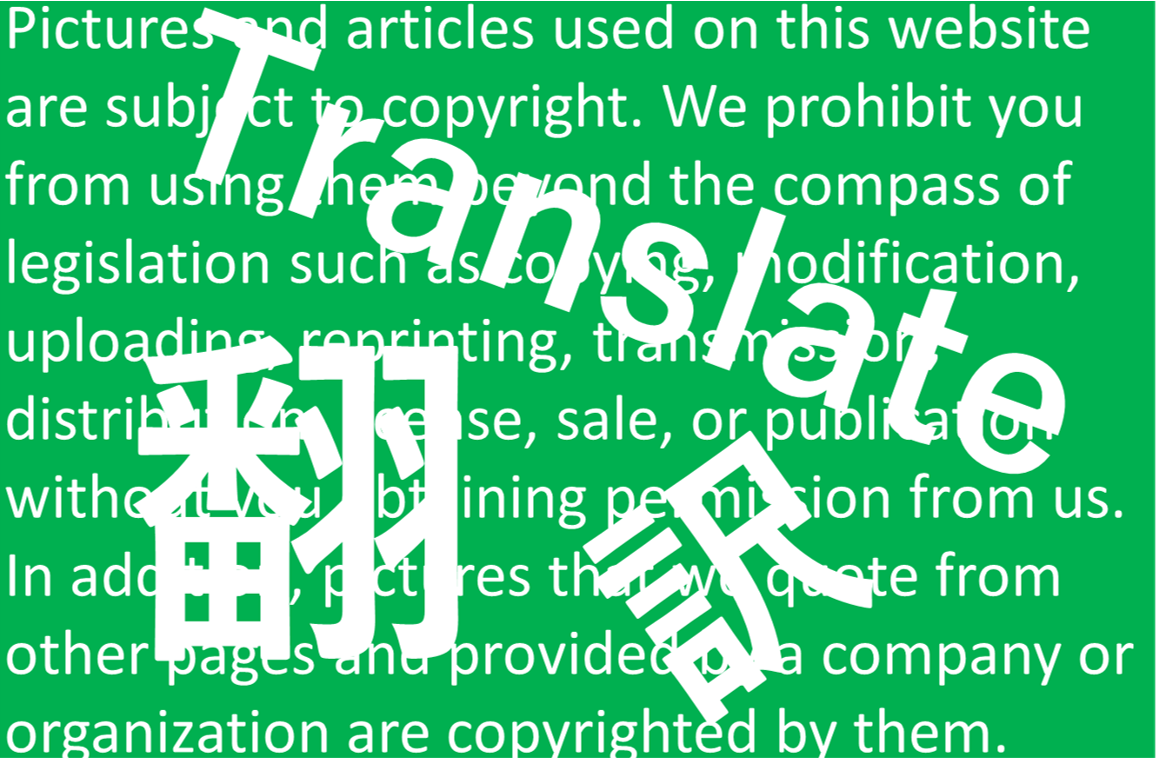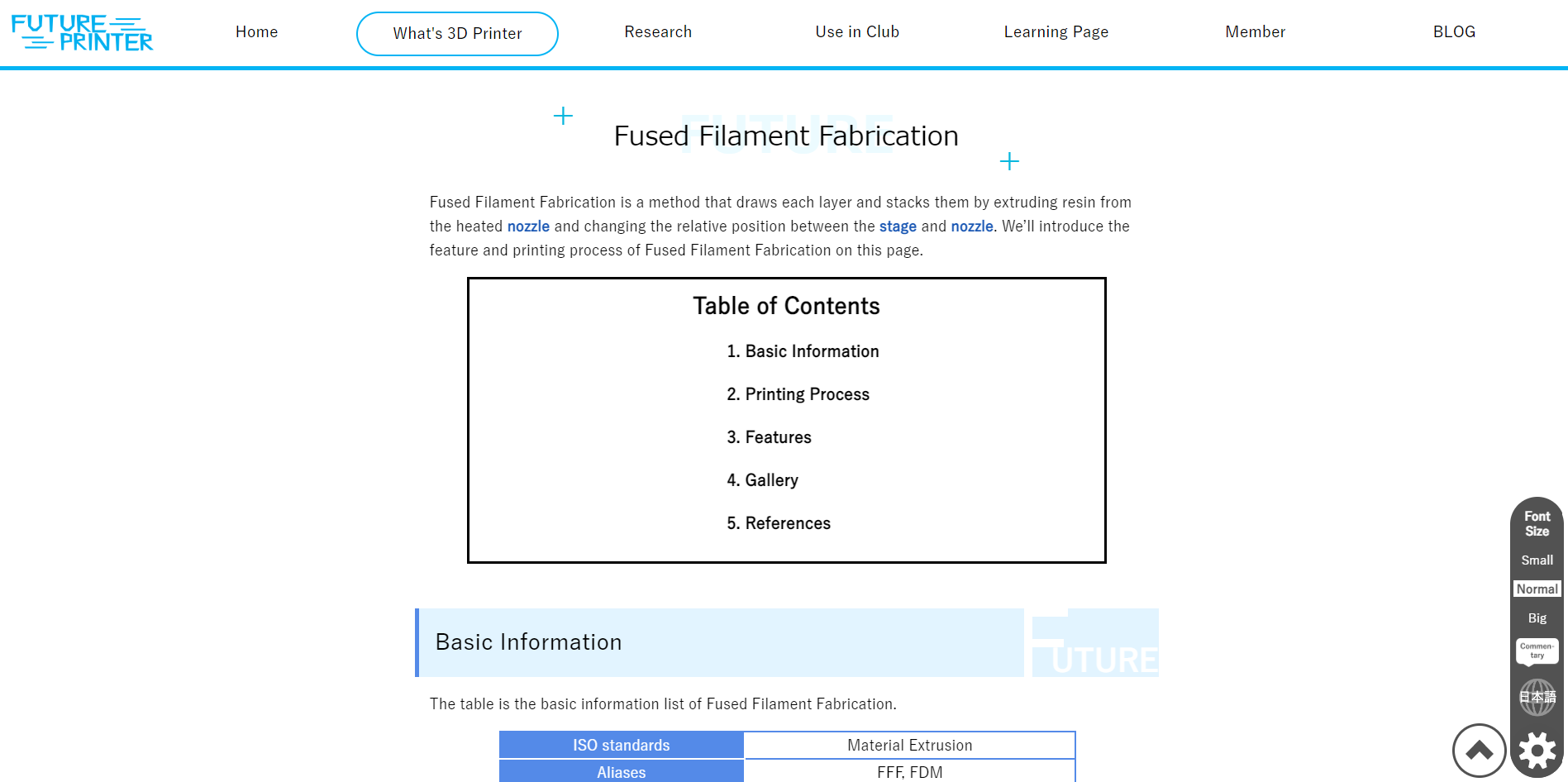🖋Takahisa
1/4/2023

Our Translation Situation
Hello.
My name is Takahisa.
In today's blog, I would like to show you how we created the English version of our website "Future Printer".

↑This picture is the actual English version of our page.
First of all, I would like to make a premise.
We had no one who could speak English properly!
When we formed the team, none of us had thought about the fact that we would have to create an English version of the web page later on, and that we should form a team with that in mind.
The team members' English abilities were as follows
Leader Riku (Sr. high school sophomore): studying English hard for entrance examinations
Sub Leader Yutaro (Jr. 1): His English grades are quite good.
System Leader Takahisa (Sr. 2): Good test scores, but no overseas experience
Coding Leader Ryushin (Sr. 2): Just recently experienced his first homestay.
So, we don't have any foreigners, half-Japanese, returnees from abroad, or people who can speak English exceptionally well...
So, after submitting our work for the first round of judging, we made three plans for the English version of the page for the second round of judging.
(Incidentally, at this time, we had not yet received any specific instructions from the competition secretariat regarding the creation of the English version of the page, as it was before the announcement of the results of the second round of judging.)
Plan A
Ask the school's English department teacher to do the whole thing.
In fact, our club, the "Dengiken," has been aiming to go global for some time, and even though we are a computer club, we have two English teachers as advisors. So, I had already mentioned to them that I might have some requests for the English version of this project around the winter break, and they had responded favorably.
However, after a careful discussion among the team members, we decided that it was not possible to "ask for the whole thing! However, after careful discussion among the team members, we decided that it was not possible for us to ask for the entire project. It was just a plan, and in retrospect, it seems a little scary...
Plan B
Automatic translation with free translation tools
The development of automatic translation tools in recent years seems to be amazing, and if you input the subject properly, they can generate native-like English (by an English teacher). So, Plan B is to put our Japanese text entirely into the automatic translation tool and create a website using only the generated English text.
However, the drawback is that our web page has a lot of technical terms. Also, after discussing it with the team, we wondered if that was really a good idea...? And. If you ask me, you are right. It's an opportunity to learn English, but relying on automatic translation tools for everything is not good for anything. Well, if I may say so, for the reader's sake?
Plan C
Use grammar and spell-checking tools and create English sentences by ourselves
The last plan is Plan C. We don't have much English ability, but we will try our best to write English sentences by ourselves and have them automatically proofread by a free checking tool to eliminate at least spelling and grammar errors. We can also use special expressions and handle technical terms well. At any rate, it would be both rewarding and a good way to learn English. Besides, with the Internet nowadays, if I don't understand the difference in phrasing or nuance, I can just search for it and look it up. This method has many unexpected advantages.
However, as you know, even though we can use proofreading tools, we have to translate that amount of Japanese by ourselves and write the English text manually. A daunting task...
Then, we received an e-mail from the competition secretariat to the semi-finalist teams, suggesting that it would be a good idea to have an English teacher/native English speaker check our work.
And we made a decision!
Now that we know that it is officially OK to have an English teacher check our work...
....
....
...
Plan C: "Use the grammar and spelling checker tool and create our own English sentences"
Let's do it at !!!!!!!!!!
I still don't remember why we decided to do that. We were officially informed that it was OK to rely on teachers... And we didn't even use automatic translation... But I think that was just a sign of our challenging spirit. If we rely on others to help us learn English and make the most of this opportunity, it would be a missed opportunity.
And so began our team's life of translating for more than 10 hours a day. Oh no. It was tough. All the members of the team divided up the work, but there was no sign of it ending at all (laughs).
But of course, this does not mean that we did not rely on the help of those around us. The specific translation procedure is as follows.
STEP.1 Create English text
⇒Translate Japanese sentences into English, page by page, using as much English as we have.
⇒In the process of translation, if there are words or technical terms that we do not know the translation of, or expressions that we feel are difficult to understand in nuance, we look up the best translation by consulting dictionary sites, Q&A sites, or overseas search results, etc.
STEP.2 Proofread with grammar and spelling check tools
⇒Readjust the parts of the English sentence you have created using a free grammar and spelling checker.
STEP.3 Apply to an automatic translation tool
STEP.3 ⇒ Apply the English sentence we created and automatically proofread to the "English ⇒ Japanese" version of the automatic translation tool, and check if it matches the Japanese meaning we originally intended to say.
⇒If not, we start over from STEP.1.
STEP.4 Ask English teachers to do a final check
⇒ Ask the two English teachers introduced earlier to do a final check of the English sentences.
⇒Paste the checked English text on the website and recode it for terminology and markers
This is how it is done. In addition, only for this blog page, we basically used a free automatic translation tool because the amount of text was indeed too large.
This is our translation process.
As for our impressions.
I can now feel that my English skills have improved.
Until now, I had only used English in class and when studying for tests, so I had never really enjoyed it that much because I had no idea how it would be used in real life. However, as I worked on the English translation this time, I realized that I could use this expression that I had learned the other day when I wanted to say this! I was able to learn English in a somewhat enjoyable way.
I also felt a little closer to foreign countries through the answers of foreign people on the Q&A site and by browsing the search results in English.
It was terribly hard work, but I think I spent a really meaningful time that will benefit me in the future. I really appreciate this contest for giving me this opportunity.
And I hope the English version of the page we created will be seen by people from many countries!!!
Thank you for your continued support!